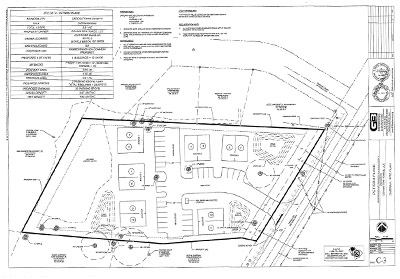Land use
Multi-family plan review revisions won’t end lawsuits

Georgetown County is one vote away from changing the way it reviews plans for large multi-family developments, but attorneys are due to argue in court this week that there is nothing wrong with the current system that led to the approval of 12 duplexes on a tract in the Pawleys Island area.
Since 2011, the process known as site plan review has required that projects with more than 10 multi-family units go before the Planning Commission for a public hearing and receive final approval from County Council. That process has been challenged in two lawsuits over multi-family projects in the Parkersville area.
County Council voted last week to allow staff to review and approve plans for those developments. Rather than conduct a public hearing, notice of the applications would be sent to property owners within 600 feet and the public would be able to review plans and submit comments within 14 days.
“This does not affect the public hearing process for other zoning requests,” said Holly Richardson, the county planning director.
The plans would only be considered in places where multi-family residential development is allowed under the current zoning.
That was the case for 2 acres on Petigru Drive where Covington Homes plans to build 12 duplex units. The commission recommended denial after hearing from area residents who were concerned about stormwater runoff, traffic and that the “general residential” zoning conflicts with the county’s future land use maps that show the property should be for medium density development.
County Council approved the plan. Neighbors and citizens groups filed suit.
The suit claims the County Council’s role in the approval process is not permitted under state law that gives “the planning commission or designated staff” the authority to approve or deny plans. The decision of the commission should have been final, according to the suit filed by Cindy Person, chief counsel of Keep It Green Advocacy.
The suit also argues that the council’s approval, had it been valid, failed to comply with state law because the medium density designation didn’t allow the number of units approved.
The county and Covington Homes have asked the Circuit Court to dismiss the suit, saying that it “incorrectly and erroneously cites” the state and local laws. A hearing is scheduled for Friday.
The council voted 5-2 last week to change the procedure. Council Member Bob Anderson argued that the Planning Commission rather than staff should conduct the site plan review. The would provide “checks and balances” as well as transparency, he said.
Council Member Raymond Newton asked whether the county could be sued for denying approval if a development plan met the county’s regulations. “We just don’t like it. We vote it down,” he said.
“If it meets your zoning requirements, it’s in compliance, and it’s turned down, then you’ve not followed your own ordinance,” County Attorney Jay Watson said.
The state law requires the Planning Commission to state its reasons for denying approval.
“They’ve not always done so. I had to go to one meeting and tell them you’ve got to undo what you did at your last meeting” and put the reasons for denial on the record, Watson said. “The vote changed.”
The commission’s recommendation to deny the 12 duplexes did not list the reasons.
Council Member Stella Mercado asked what would happen if, “hypothetically, Planning Commission goes rogue and doesn’t vote the way that they should, as you said has happened in the past. What then is the process?”
If staff conducts the review, the decision can be appealed to the Planning Commission, Watson said.
“If staff makes an error, a developer or interested party can appeal it,” he said. “Then, if one party feels aggrieved at that point that the Planning Commission made the wrong decision, then the appeal would be to the Circuit Court. Staff makes the decision, but it does not foreclose party who feels staff made a wrong decision from an avenue of appeal.”
Anderson said the commission still needed to be part of the review process in case staff made a mistake. “That’s my case right there,” he said. “They’re there as checks and balances.”
Nine people spoke against changing the process, citing a lack of transparency and public input. Keep It Green, one of the groups suing over previous approvals of multi-family projects, got 800 signatures in two days on an online petition in opposition, Person said.
“It’s not improper for staff to make the decision under state law,” she said afterward, but in removing the public hearing “you’re not putting the proper procedures in place to compensate.”
Person is concerned that the appeals process isn’t adequately addressed in the county’s proposal. The law requires that an appeal be filed within 30 days, but there is no provision for providing notice of staff decisions other than monthly reports to the Planning Commission. By then, it may be too late to appeal, Person said.
“How do we find out? How do we appeal?” she asked.
The council is scheduled to give final approval to the change on June 27.




